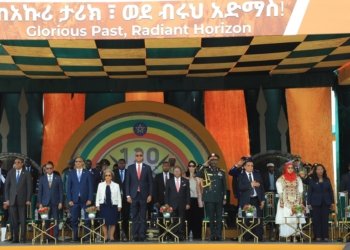LILONGWE, Malawi (BG) – Malawi is charting a new course in its battle against gender inequality and the HIV epidemic through innovative initiatives that engage men as allies and focus on community-driven solutions.
Once known for its high HIV prevalence and entrenched gender disparities, the southern African nation is transforming its health and social landscape, driven by the UN Women’s Gender and HIV HeForShe project.
The initiative addresses the interplay between harmful societal norms, gender-based violence (GBV), and the HIV epidemic, which disproportionately affects women and girls.
With a population of over 20 million, Malawi has approximately 991,600 people living with HIV, according to the 2024 Spectrum/Naomi estimates, and faces intersecting challenges of GBV and health inequity.
Engaging Men to Champion Change
The HeForShe movement, introduced in Malawi in 2015, is a cornerstone of the country’s gender equality efforts.
By leveraging male allyship, the initiative dismantles patriarchal norms and promotes positive masculinity through awareness, advocacy, and action.
Key tools like the HeForShe Barbershop Toolbox create safe spaces for dialogue, equipping men to challenge stereotypes and take actionable steps in their communities.
Adapted to Malawi’s unique cultural contexts, these tools use barbershops, markets, and even taverns as platforms for discussions about GBV, HIV, and shared responsibilities.
“The mobile clinics are really bringing the much-needed GBV and family planning services to us on the ground. This has eased the burden of having to travel long distances to access services,” says Chikondi Mulaula, a project beneficiary.
The initiative has mobilized over 26,000 men and boys directly and engaged an additional 166,000 indirectly, transforming them into agents of change within their communities, according to UN Women.
Grassroots Solutions for Complex Challenges
HeForShe works at the grassroots level, involving traditional and religious leaders who act as gatekeepers of cultural norms.
The leaders have helped develop 52 local by-laws to combat violence against women and girls, fostering greater accountability within communities.
Male-focused discussions in natural meeting places such as fishing camps, bars, and marketplaces have broken taboos around sensitive topics like HIV and sexual health, promoting health-seeking behaviors among men.
“Currently violence against women and girls has reduced because of different groups, for example, HeForShe acts when there is a report that a woman or a girl has been violated. So, I can say now violence against women and girls has reduced compared with the past,” notes Boston Kella, Chairperson of the HeForShe network in Mangochi, a township in the Southern Region of Malawi.
Progress Catalyzed by HeForShe
The HeForShe project has led to measurable progress in Malawi’s fight against HIV and gender inequality.
Community outreach programs have increased HIV testing rates and supported defaulter tracing. By December 2023, 97% of people living with HIV had been diagnosed, 98% of those were receiving antiretroviral therapy (ART), and 95% of those on ART were virally suppressed—surpassing the UNAIDS 95-95-95 targets.
Village Savings and Loan schemes have enabled 83 women living with or affected by HIV to start businesses, fostering financial independence and resource management.
Launching the National Male Engagement Strategy on Gender Equality, GBV, Sexual and Reproductive Health Rights (SRHR), and HIV (2023–2030) underscores Malawi’s long-term commitment to systemic change.
“As a nation, we are proud of the strides we are making within the Gender and HIV space, however, its important not to drop the momentum as we aim to reach the furthest mile. It is important that we continue to support communities and let them lead in the final response,” says Lusungu Jonazi of UN Women Malawi.
The HeForShe initiative amplifies the voices of change-makers across Malawi—youth, community leaders, and traditional gatekeepers—who challenge harmful norms and advocate for equality. These grassroots efforts have reduced GBV cases and created resilient community justice systems.
A Model for Sustainable Change
Malawi’s integrated approach to addressing HIV and gender-based violence offers a blueprint for other nations grappling with similar challenges.
Combining community engagement, innovative tools, and policy support, the HeForShe project demonstrates that empowering communities is key to sustainable progress.
During the 16 Days of Activism against Gender-Based Violence is a key international moment to call for an end to violence against women and girls (VAWG), the UN Women called on global citizens to join initiatives like HeForShe, empowering local communities to lead the change.
As Malawi has shown, a unified and inclusive approach can build a future where gender equality and health equity are no longer aspirations but realities.
The 16 Days of Activism runs from November 25 (the International Day for the Elimination of Violence Against Women) until December 10, Human Rights Day each year.
Originally by UN Women – Africa, rewritten by Felix Tih, Bantu Gazette.




















